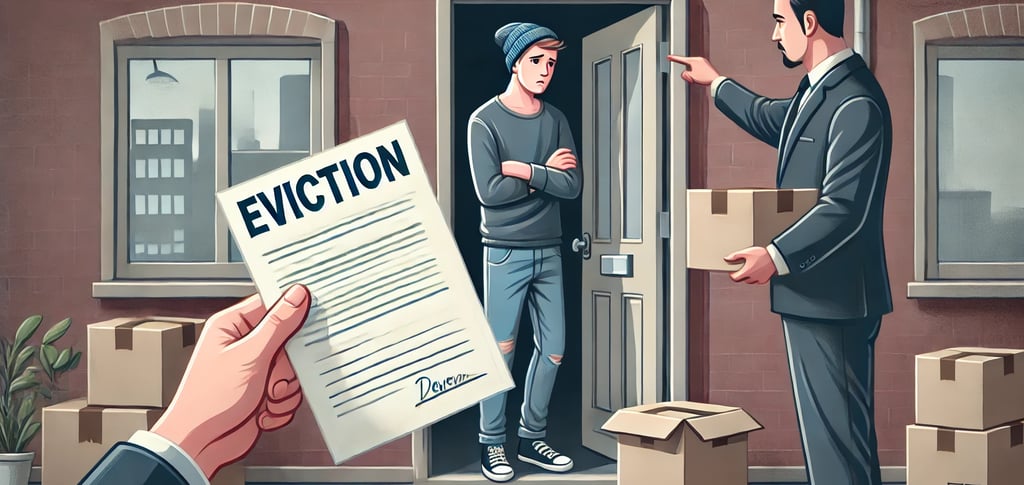Can a Tenant Defend an Eviction by the Landlord? Your Rights Explained
Facing eviction? Learn how tenants can defend against unlawful evictions, understand legal rights, and take action to protect their housing.
2/28/20252 min read


Eviction is a stressful experience, but tenants are not powerless. If your landlord is trying to evict you, you can fight back—if you know your rights. This guide breaks down how tenants can defend against eviction in simple, actionable steps.
Can a Tenant Fight an Eviction? Yes—Here’s How
Landlords must follow strict legal rules to evict tenants. If they fail to do so, you may have grounds to challenge the eviction. Common defenses include:
Improper notice: Landlords must give written notice (e.g., 30 days) before filing an eviction lawsuit.
Retaliation: Evictions are illegal if the landlord is punishing you for reporting unsafe living conditions.
Discrimination: Evictions based on race, religion, disability, or family status violate fair housing laws.
Breach of lease by the landlord: If they failed to make repairs or violated the lease terms, you may have a defense.
Legal Grounds for Eviction: What Landlords Must Prove
Landlords can only evict tenants for valid reasons, such as:
Nonpayment of rent (if you’re behind on payments).
Lease violations (e.g., unauthorized pets, damage to property).
End of lease term (if you’re month-to-month and given proper notice).
If your landlord cannot prove one of these reasons in court, the eviction may be dismissed.
How to Defend Against Eviction: 5 Steps to Take
Review the eviction notice: Ensure it’s valid, includes correct dates, and complies with state laws.
Document everything: Save copies of rent receipts, repair requests, and communication with the landlord.
Respond to the court: File a written response (answer) by the deadline to avoid a default judgment.
Attend the hearing: Present evidence (e.g., proof of rent payment, photos of repairs needed).
Negotiate: Ask for more time to pay rent or fix the issue to avoid eviction.
What if the Eviction is Wrongful?
Tenants can sue landlords for illegal eviction if they:
Change locks without a court order.
Shut off utilities to force you out.
Use threats or harassment.
In such cases, you may recover damages or even regain possession of your home.
When to Seek Legal Help
Housing laws vary by state, so consult a tenant attorney or local legal aid organization. Many offer free or low-cost services. Key resources include:
Local housing authority
Legal Aid Foundation
Tenants’ rights nonprofits
Final Takeaways
Tenants can defend evictions if landlords break the law.
Act fast: Missing deadlines or court dates weakens your case.
Always get eviction notices and court filings in writing.
FAQs
Q: Can I stop an eviction if I pay the overdue rent?
A: In many states, paying rent in full (including late fees) before the court date can cancel the eviction.
Q: What if my landlord didn’t give proper notice?
A: You can argue the eviction is invalid. Judges often dismiss cases with improper notice.
Q: Can I sue my landlord for wrongful eviction?
A: Yes. If they evicted you illegally, you may claim compensation for moving costs, emotional distress, or even punitive damages.
Housing India
Your source for housing insights in India.
© 2025. All rights reserved.
